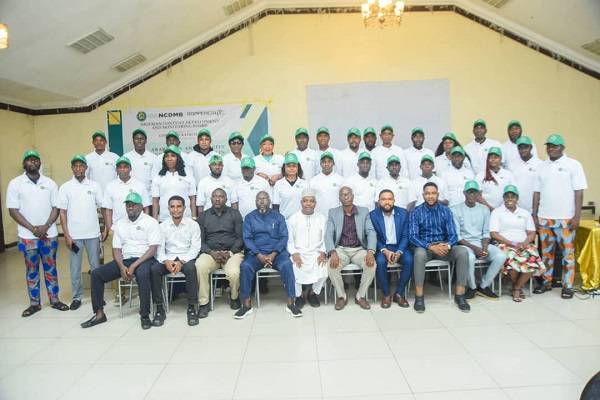The Nigerian Content Development and Monitoring Board (NCDMB), in collaboration with Coppercrux Limited, on Monday in Port Harcourt flagged off a 5-day Awareness and Capacity Building Workshop for youths in the South-South region on compressed natural gas (CNG) technologies and the associated value chains.
Areas covered on Day 1 of the training programme include “Introduction to CNG and Energy Transition: Awareness, Importance and Benefits,” “Presidential CNG Initiative: An Overview,” and “Economic Opportunities for Youths in the Green Energy Sector,” with interactive sessions during intervals for questions and answers between participants and resource persons.
In a welcome address at the event, the Executive Secretary of the NCDMB, Engr. Felix Omatsola Ogbe, said the workshop was of strategic importance to the Board in the pursuit of its core mandate of capacity building and its implementation of the Presidential CNG Initiative, a critical component of Federal Government’s programme for energy security, job creation and environmental sustainability.
He charged the 50 participants in the workshop to take full advantage of the training, pointing out that CNG as a relatively new energy source in Nigeria has enormous opportunities that could significantly transform individual lives and usher in economic growth and industrialisation in the wider society.
The Executive Secretary, represented by Mr. Kingsley Neyin, a Deputy Manager in the Executive Secretary’s Office, who said that under the specialised training being provided, participants would understudy industry experts and have sufficient exposure to industry practices as would fit them for efficient operations in the oil and gas sector.
“Some will seek employment and others could take off as entrepreneurs,” he explained, while urging them to access the Nigeria Oil and Gas Industry Content Joint Qualification System (NOGIC JQS) to register whatever skills and capacities they have acquired as individuals or as companies.
In the first presentation of the workshop, Professor Aminu Bayawa Muhammad, of the Department of Energy and Applied Chemistry, Usmanu Danfodio University, Sokoto, examined different aspects of the topic, “Introduction to CNG and Energy Transition: Awareness, Importance and Benefits,” with special focus on the global energy challenge, CNG vs. LNG vs. LPG, energy transition, as well as benefits.
He noted that the world has continually transited from one source of energy to another, beginning from the earliest times, and that the conventional fuels of the present, notably, coal, petrol, and diesel, among others, have become increasingly harmful as a result of greenhouse emissions and the associated global warming. CNG, he explained, is a transition fuel as the push for cleaner energy progresses.
According to him, “The global shift from fossil-based systems of energy production and consumption to renewable energy sources of energy like solar and wind…is a journey, not an overnight switch.”
He listed benefits of CNG to include environmental sustainability, performance (given the high-octane rating of CNG, which enhances engine efficiency), safety in terms of the strength of CNG tanks, lower fuel and maintenance costs.
In conclusion, he stated that “CNG is a proven, safe, and readily available alternative fuel,” and that it plays a crucial role as a transition fuel.
In an overview of the Presidential CNG Initiative, Dr. Dagwon Y. Wang, an associate professor of Accounting and Public Finance at ANAN University, Kwali, Plateau State, said the Federal Government is deliberate in its CNG programme, seeking clean energy and reduced emission to support its climate goals.
Other key targets of Government include investments, job creation, and lower transportation costs. He said trainees would carry out part of their programme in conversion centres alongside other activities to enhance their understanding of the CNG value chains.
On economic opportunities for youths in the green energy subsector, a facilitator of the workshop, Mr. Adejo Joshua, pointed out that within the value chains are manufacturing (of CNG cylinders, components, kits, etc.), conversion (of vehicle engines), equipment supply, and servicing, among others.
At the macroeconomic level, he noted, the CNG Initiative would boost import substitution, infrastructure development, and innovation in transportation. According to him, entrepreneurial opportunities also abound in areas such as CNG retrofitting centres, eco-friendly product design, CNG sales and distribution, as well as Information Technology (IT) software.
In his conclusion, he stated that “green energy is more than just a climate solution; it’s a youth empowerment accelerator.”
In a vote of thanks, a participant, Mrs. Eniola Shittu, expressed profound appreciation to the NCDMB for the workshop which, according to her, “takes us through a world of possibilities.” She also thanked the facilitators and resource persons for the zeal they have demonstrated in the training.
The workshop continues at the La Trinite Event Hall, Eliozu, Port Harcourt, on Tuesday.


Comment here